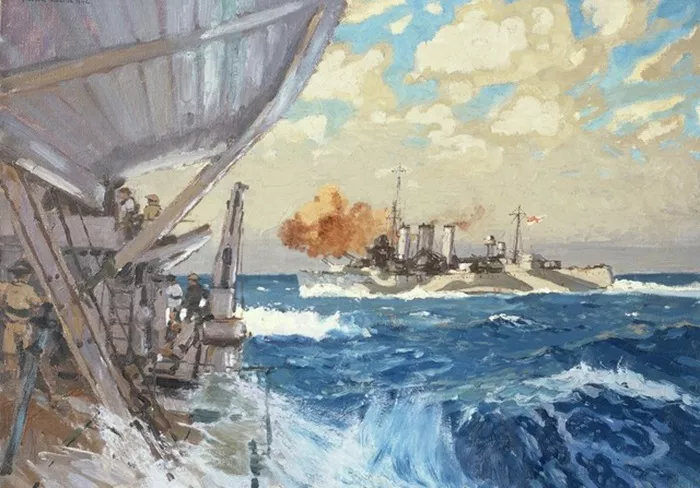March 17 has witnessed significant events in the history of the United States, ranging from cultural milestones to major political actions. These events, although sometimes overshadowed by global developments or other notable dates, have shaped the country in profound ways. From the early days of American independence to modern times, March 17 marks the anniversary of pivotal moments that have had lasting impacts on American society, politics, and culture.
What Happened on March 17 in American History?
St. Patrick’s Day Celebrations in America (Various Years)
St. Patrick’s Day, though originating in Ireland, has become a major celebration in the United States. It is recognized as a cultural and religious holiday, celebrating Irish heritage and culture. The tradition of St. Patrick’s Day parades began in the early 18th century and has grown to become one of the largest parades in New York City, with millions attending each year. The holiday is marked by wearing green, enjoying Irish music, and, often, partaking in Irish food and drink.
March 17, 1776 – The Evacuation of Boston
On March 17, 1776, British forces evacuated Boston, ending a nearly year-long occupation. This event was a significant victory for the American Revolutionaries and was celebrated across the colonies. The British had occupied the city since 1774, but following the Siege of Boston, they were forced to leave after suffering from strategic difficulties and the inability to hold their position. The departure of the British was a key moment in the Revolution and an important symbol of American resistance.
March 17, 1825 – The Erie Canal Opens
On this date, the Erie Canal, one of the most important infrastructure projects of the early United States, was completed. The canal connected the Hudson River to Lake Erie, significantly improving transportation and trade between the Atlantic Ocean and the Great Lakes. This engineering marvel had an enormous impact on the development of the United States, particularly in terms of economic growth. The canal made New York City a major port and helped fuel the expansion of the Western territories.
March 17, 1905 – President Theodore Roosevelt’s First White House Conference on Conservation
President Theodore Roosevelt, a progressive leader who championed conservation efforts, held the first White House Conference on Conservation on this day in 1905. The conference brought together experts from around the country to discuss the management and preservation of the nation’s natural resources. This event led to the establishment of the National Conservation Commission, which laid the foundation for the federal government’s role in preserving America’s wilderness and establishing national parks.
March 17, 1965 – First American Civil Rights March from Selma to Montgomery
The Civil Rights Movement in the United States reached a pivotal moment with the March 17, 1965, march from Selma to Montgomery, Alabama. Led by Dr. Martin Luther King Jr. and other civil rights leaders, this march was part of a series of protests that sought to bring attention to the need for voting rights for African Americans in the South. While the first march was halted by violence, it laid the groundwork for the eventual success of the movement, which culminated in the Voting Rights Act of 1965.
March 17, 1973 – The Watergate Scandal Begins to Unfold
On this date, the Watergate scandal, one of the most significant political scandals in American history, began to unfold. The scandal revolved around a break-in at the Democratic National Committee headquarters at the Watergate complex in Washington, D.C. Subsequent investigations revealed widespread abuse of power by the Nixon administration, leading to the eventual resignation of President Richard Nixon. The events surrounding Watergate dramatically changed the American political landscape and brought issues of governmental accountability and transparency to the forefront.
March 17, 1992 – The Great Blizzard of 1992 Hits the Northeast
In 1992, the Northeast United States was hit by a powerful snowstorm known as the Great Blizzard of 1992. The blizzard brought heavy snow, ice, and dangerous winds to cities like New York, Boston, and Philadelphia, resulting in the cancellation of flights, school closures, and widespread power outages. The storm was a reminder of the vulnerability of American infrastructure and the challenges of coping with severe weather.
March 17, 2010 – The Affordable Care Act Passes the House of Representatives
On March 17, 2010, the House of Representatives passed the Affordable Care Act, also known as “Obamacare.” The legislation was a landmark achievement in American healthcare policy, aiming to provide affordable health insurance to millions of uninsured Americans. The passage of the bill was the culmination of years of debate and marked a significant shift in the nation’s healthcare system. Though controversial, the act has had lasting effects on American society, improving access to healthcare for many people.
Conclusion
March 17 has been a day of varied events that shaped the course of American history. From early independence struggles to modern political milestones, the events that occurred on this date have left a lasting impact on the nation’s political, cultural, and social landscape. Whether celebrating Irish heritage or fighting for civil rights, March 17 offers a unique glimpse into the diverse and dynamic history of the United States.
Related Topics:

